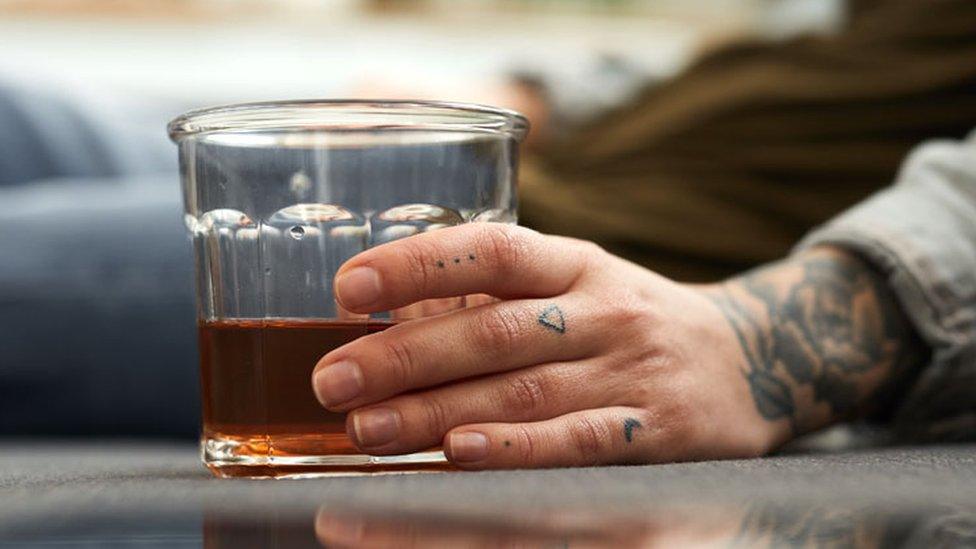Call to tackle rise in alcohol-related deaths in Scotland
- Published
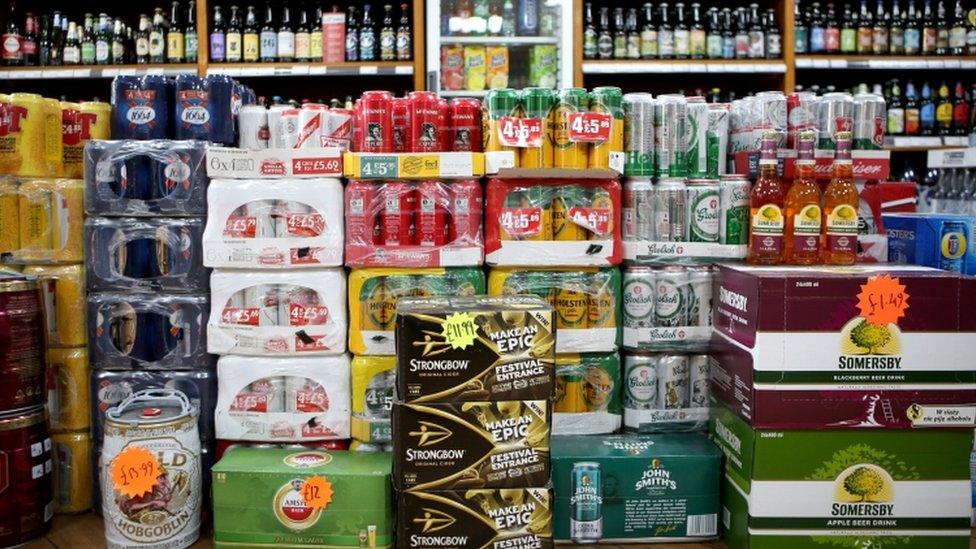
Tougher measures are needed to tackle the highest level of alcohol-related deaths for more than a decade, medical experts have said.
More than 30 charities and public health bodies called for better access to recovery services and an increase in the minimum price of alcohol.
They also want to see more restrictions on alcohol marketing.
It comes a day after First Minister Humza Yousaf confirmed a proposed crackdown had been paused.
He said the proposals to restrict alcohol advertising, especially to young people, had caused real concern to an industry which was already facing challenges.
Mr Yousaf said he had instructed officials to take the ideas back to the drawing board and work towards a new set of proposals.
Figures from 2021, the last year available, show 1,245 people died from conditions caused by alcohol, the highest level since 2008.
Experts believe restricted services and isolation were factors in a spike in alcohol deaths during the Covid pandemic.
'We must redouble our efforts'
Dr Alastair MacGilchrist, chairman of expert alcohol medical group, Scottish Health Action on Alcohol Problems, told the BBC the alcohol crisis did not get as much attention as it should.
"I don't think people know how much alcohol-related harm has increased during the Covid pandemic," he said.
He added: "Alcohol treatment services have diminished over the last few years.
"There is a real need to crank them up in quality and quantity so that people who are suffering from alcohol problems can get the help they need."
Dr MacGilchrist said there was not the capacity in the system to support people coming forward with alcohol issues. He also said Scotland needed to address the core problem of people drinking too much.
"We must redouble our efforts to reduce the amount people drink," he said. "We can enhance existing measures such as minimum unit pricing and introduce further measures such as restricting marketing."

'If I didn't stop, they told me I had no future at all'
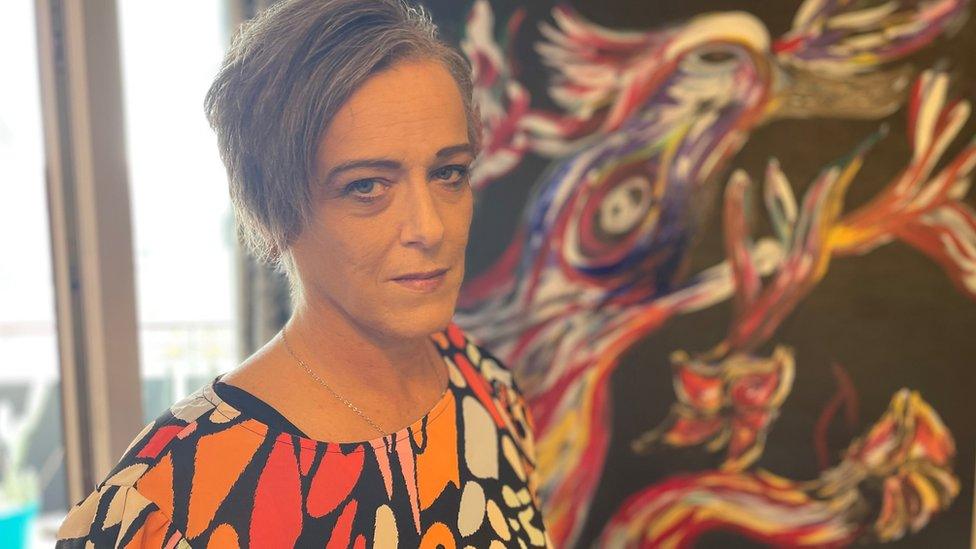
When Shari returned to her native Edinburgh after 30 years in London, alcohol was already a large part of her life.
The 53-year-old told BBC Scotland she was at a low ebb - she had left her career in advertising and her relationships were breaking down.
But it was the arrival of Covid and lockdown that led to her addiction being "catapulted into the extremes".
"There was just loneliness, and with alcohol, I was thinking I had found the anaesthetic to numb life and make it seem that little bit better, more bearable," she said.
"Then I was so wrapped up in it I thought it was the only way to live life."
Shari added: "The only disciplined part of my day was, fundamentally, the purchase of alcohol."
She said her routine involved little except drinking and sleeping.
"That was relentless - day in, day out, every day," she said.
Liver damage
She said alcohol support was restricted during the pandemic and many services went online.
"What was the point in being online doing an AA meeting with a drink sitting on the floor beside me?," she said.
Shari added that her alcohol consumption had a "huge impact" on her health. She was picked up by paramedics on numerous occasions and ended up being treated for liver damage at Edinburgh Royal Infirmary.
She said: "There were numerous things wrong with me, and they were all basically alcohol-related, to the point, where my family and I were told that I had to stop and if I didn't, I didn't have a future at all.
"The damage I have done to my body is irreparable."
Shari has been sober for a year after a stint in residential rehab. She is supported by the charity Rowan Alba.
She told BBC Scotland she had now returned to her hobby of painting.
"I feel like a different person," she said. "I feel like the old me. I feel like have the ability to feel emotions, to want to do things, to achieve things in my life."

Blinkered to reality
Alison Douglas, chief executive of Alcohol Focus Scotland, said alcohol was an addictive drug that destroyed health yet it was still promoted as an everyday product, essential to having fun and relaxing.
"We are blinkered to the reality of the high levels of damage it causes," she said.
"Unless urgent action is taken now then we could be sleep-walking our way back to the record levels of deaths we saw in the early 2000s."
Drugs and Alcohol Policy Minister Elena Whitham said the Scottish government was determined to do all it could to reduce alcohol-related harm.
She said the introduction of Minimum Unit Pricing (MUP) had faced significant challenges but it had reduced demand for alcohol.
"Recent research estimated it has helped reduce alcohol sales to their lowest on record, saved hundreds of lives and is having an effect in our most deprived areas," she said.
The minister said the government's National Mission included investment in residential rehabilitation for patients treated for issues related to alcohol.
Related topics
- Published21 March 2023

- Published8 February 2023
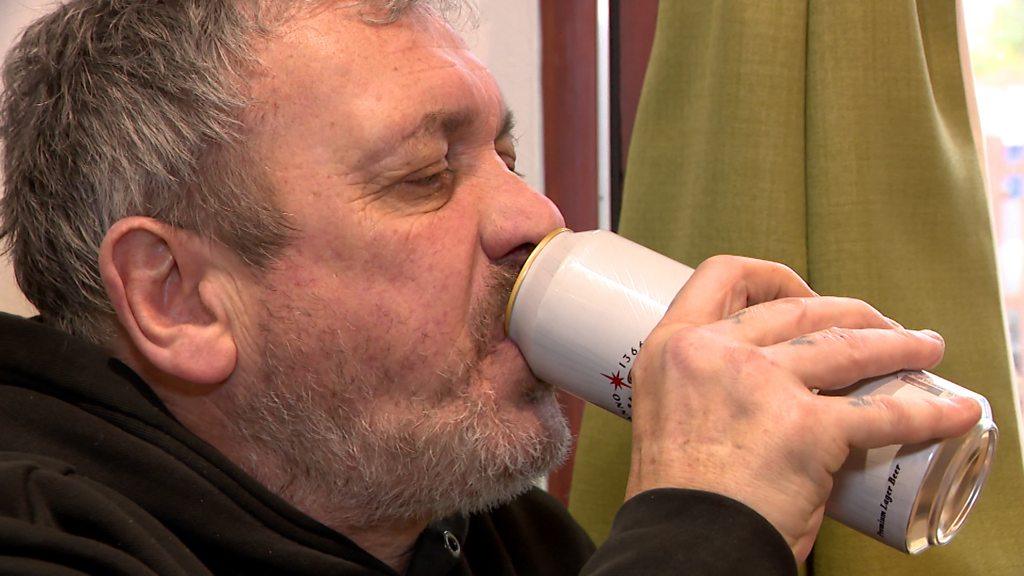
- Published14 January 2023
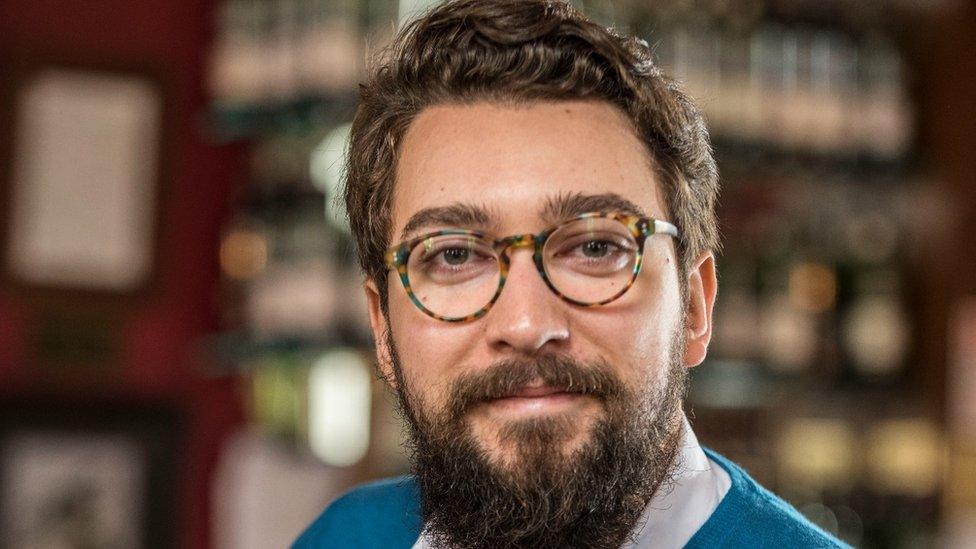
- Published4 August 2022
